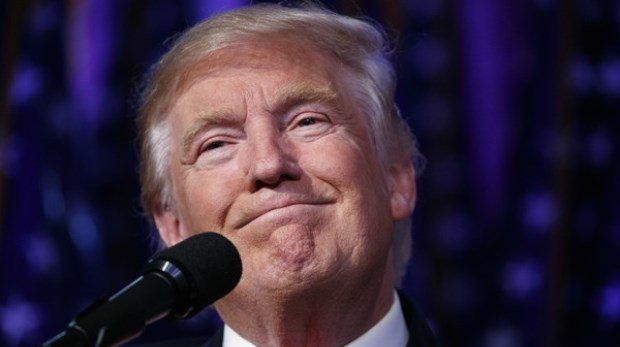White Americans have sent their message loud and clear. Now they have Trump, a man who believes American judges have the power to sign laws. With the current majorities, he can change the legal directions for decades, says Andrew Hammel.
In a deeply riven America, the only point about which all Americans can agree is this: The election of Donald Trump is the most stupendous political event Americans have seen in our lifetimes. He is the first US President with no previous political or military experience. His campaign was run by a bare-bones staff and was ludicrously amateurish. The general verdict was that he lost all three debates with Hillary Clinton. He spouted a seemingly endless series of falsehoods, racist and sexist rhetoric, and offensive remarks, any one of which would have destroyed an ordinary candidate.
Yet these supposed flaws were simultaneously the key to his appeal. He came across as abrasive, decisive, direct, and rude – but genuine. Against Hillary Clinton's scripted, poll-tested soundbites, he offered tirades against the evils of the system which were as blunt as they were vague. Both his charisma and his policy positions motivated millions of less-educated white voters to switch their votes from Obama or to go to the polls for the first time, defying all forecasts. He also attracted surprising support from white voters with college degrees, and even outperformed Mitt Romney among blacks and Hispanic voters. Trump was also assisted by Clinton's safe, lackluster campaign, which sparked little enthusiasm and left her vote totals millions short of what Obama achieved.
White Americans are the majority
Trump voters wanted to deal a savage blow to the out-of-touch elites who, as they saw it, lined their own pockets with wealth derived from insider privilege while middle-class incomes fell farther and farther behind. As a report from the Center on Budget and Policy Priorities revealed, the median incomes of white males without college degrees fell 20 percent in real terms from 1975 to 2014.
Low-income Americans, especially rural whites, are falling victim to drug addiction and family breakdown at increasing rates, and their life expectancy is actually shrinking, an alarming fact in an advanced economy. Many Trump voters saw the mainstream national media and the Obama administration as too focused on the needs of blacks and Hispanics, immigrants, and sexual minorities. Although it’s too early for a definitive analysis, white voters seem to have viewed this election as an opportunity to wrench the focus back to their needs by demonstrating that white Americans are still in the majority, and that they can play the game of identity politics as well as anyone else.
That message was received loud and clear. American commentators are still stumbling blindly through the dust in the aftermath of this political earthquake. Nevertheless, some dim outlines are beginning to emerge. I will focus on the political and legal consequences of Trump's election, both in the short and long term.
Nominations for the Supreme Court
The American Supreme Court wields outsized power in comparison to many other national supreme courts. Nine Justices are appointed for life. The President nominates Justices, but the Senate must 'advise and consent' by voting a simple majority of its 100 members to confirm the President’s nominee. Historically, this process was relatively free of politics, but that has changed radically in the last decades.
After the death of conservative Antonin Scalia, his seat has remained empty, leaving the Court with only eight members, split evenly between liberals and conservatives. President Obama nominated Merrick Garland, a 63-year-old center-left moderate, to replace Scalia. But the Republican-controlled Senate used procedural delays to prevent a vote on Garland's nomination, leaving the Court in limbo.
That has all now been swept aside by Trump’s victory, which also left the Senate with a 51-48 Republican majority with one seat still too close to call. Trump has no legal training and has revealed remarkable ignorance on the campaign trail with suggestions that the U.S. Constitution has 12 Articles (it has only 7) and that American judges have the power to sign laws. Nevertheless, Trump early on saw judicial nominations as a key to convincing traditional Republicans to sign on to his unconventional campaign. He said in debates that he would appoint conservatives in the mold of Scalia if he won, and even put forward a list of 21 solid conservatives whom he said he would consider appointing. There is no reason to doubt he will nominate from among the people on this list and others with similar ideology. These judges will interpret the Constitution in a narrow manner, remaining faithful to what they see as the 'original intent' of the Enlightenment thinkers who framed the Constitution. They will not interpret the Constitution expansively to conform to modern trends, and will tend to be more skeptical of international law and expansive interpretations of civil liberties.
United States Presidential Election: . In: Legal Tribune Online, 15.11.2016 , https://www.lto.de/persistent/a_id/21157 (abgerufen am: 01.09.2024 )
Infos zum Zitiervorschlag







